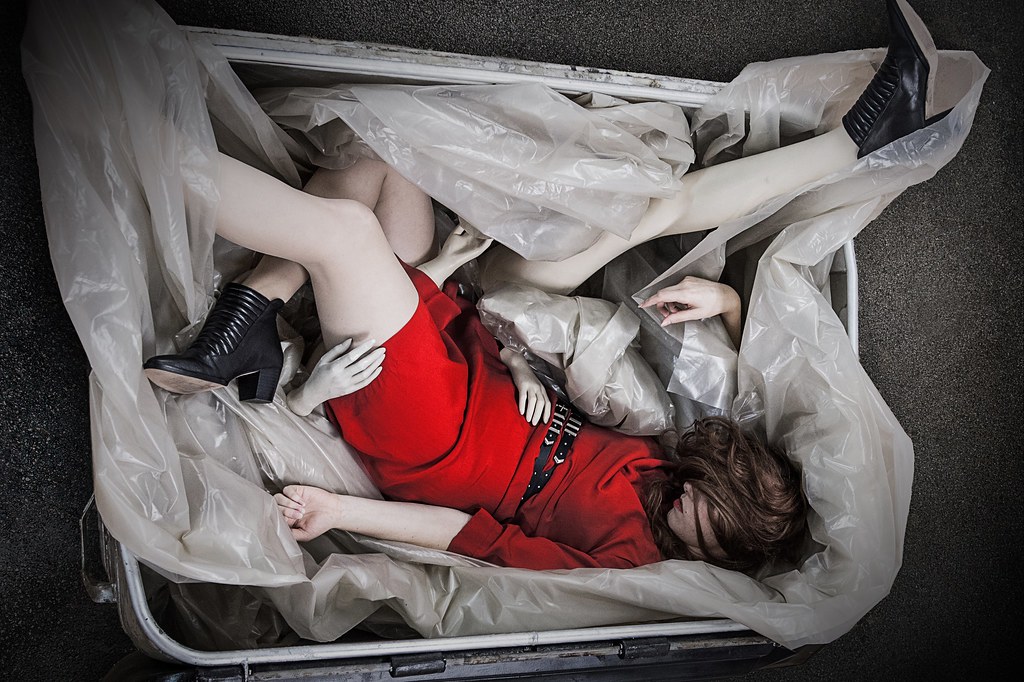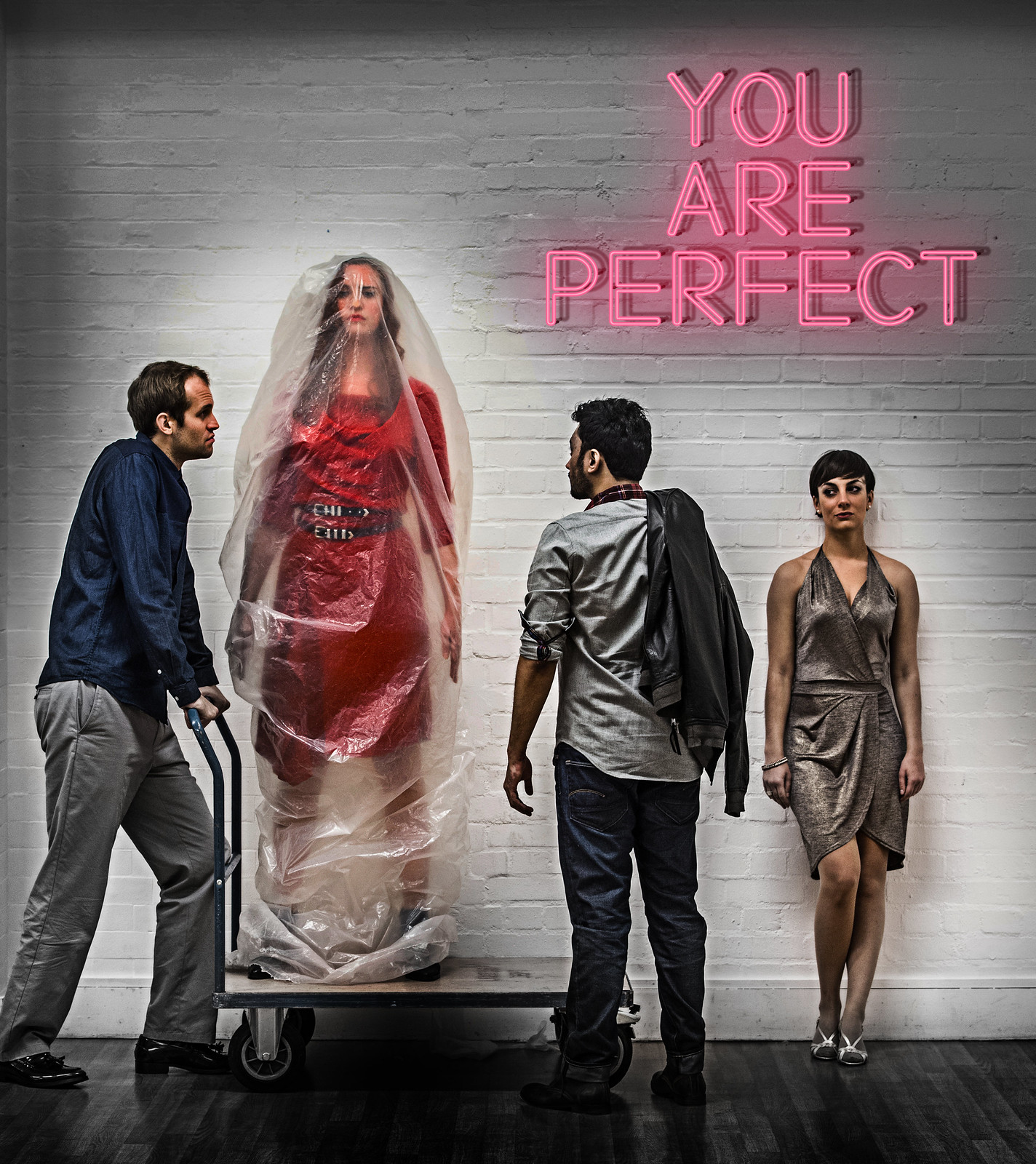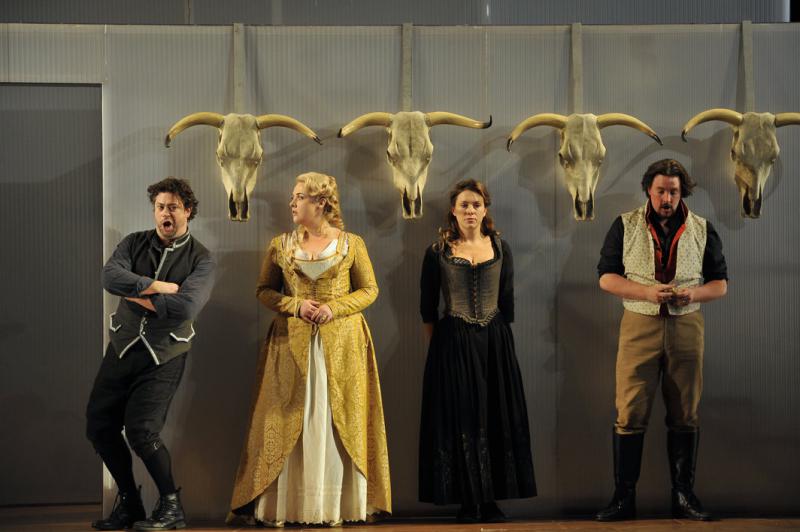By Mary Grace Nguyen
 |
| Sky Ingram as Lea in Glare. Royal Opera. Photographer - Sim Canetty-Clarke © ROH 2014. |
Philosophical inquiry into the nature of consciousness has
been discussed ever since humans have existed. 16th century French
philosopher René Descartes first introduced the phrase Cogito ergo sum (I think therefore
I am) to prove that if someone was capable of thinking, than they must exist.
Yet in 1949 English philosopher Gilbert Ryle
argued against Descartes notion of the mind and body with his own premise
namely, ‘Ghost in the Machine’ claiming there was no such thing, as the mind
and the body co-existing, but only the mind. I cannot attempt to list all of
the ideas concerning consciousness; but it is fair to say that many
philosophers, until now, still grapple with this never-ending debate.
Sci-Fi movies such as The Matrix and
Blade Runner, (and even Japanese Anime like Ghost in the Shell) have presented
visual vehicles to see how these metaphysical notions would play out. Now, in
the Linbury Studio theatre of the Royal Opera House, we have a new Sci-Fi opera
that have the fine trimmings of a Sci-Fi production: the electronic music, the
science fiction storyline and ‘glaring’ visuals.
In this intriguing opera, composed by Søren
Nils Eichberg and directed by Thaddeus Strassberger, Alex (Amar Muchhala) breaks up with Christina (Clare Presland)
and begins a brand new relationship with Lea (Sky Ingram): an absolutely
perfect girl. Yet things aren’t what they seem. Alex begins to notice her
strange and often repetitive behaviour and as he confides this to his scientist
friend - our modern day Victor Frankenstein - (Ashley Riches), he explains that Lea is in fact a Learning, Exposed
Android.
From the outset the musical composition
sets the tone for our Sci-Fi genre by harnessing a refreshing and experimental
score of classic, rock, jazz, and, more importantly, electronic music. (My ears
also heard deep bass notes from night club genre dubstep as well.) With
craftsmanship, Eichberg’s score meshes together atmospheric sounds
which neatly tie in the interactions of its characters and stress the deeper
questions the opera asks such as what is real? What is natural? What constitutes as a person? And even, what
is the perfect girlfriend?
Conducted by Geoffrey Paterson CHROMA, a chamber orchestra of 11
players (including drum kit, double bass, contrabassoon and bass clarinet), string together a mix of contemporary music with computerised sounds amplified
by speakers surrounding the audience. This, layered with beautiful operatic
voices, clearly thwarts every preconceived idea that opera is only for
classical music lovers.
Madeleine Boyd’s setting is also fitting
and doesn’t require special effects or prosthetic
makeup. Set in present day, the minimalistic
stage of the Linbury studio is sufficient for this short, 1 hour 15 minutes,
splendid opera. On our left is pink neon lights with the words ‘you are
perfect’, a white mattress and a metal sink on our right.
 |
| Ashley Riches as Michael, Sky Ingram as Lea, Amar Muchhala as Alex and Clare Presland as Christina in Glare. Photography by Sim Canetty-Clarke © ROH 2014 |
There are peaceful scenes of a sexual
nature, including lesbianism, that are not humiliating; but there are also
physically violent scenes including attempted rape. What the audience sees and
hears may urge some to think the libretto, written by poet Hannah
Dübgen, is misogynistic unfortunately with tell-tale lines such as ‘women are
all the same!’ Yet these honest lyrics to every day conversation, which is sang
operatically, are pertinent and highlight the abnormal and alien nature of the
Sci-Fi genre.
Glare has excellent performances from its opera cast. Ingram
as Lea gave a perfect performance, both vocally and on stage, and that wasn't
just because her android self was meant to be. Her envision of Lea was
innocent, and it was sad to see her confused of her identity and victimised by
all. Muchhala sung with sensuality and genuineness for playing the indecisive and
troubled male while Ashley Riches developed his villainous character as an evil baritone
and prime non-sympathetic and unfeeling chauvinist. And Clare Presland as
Christina sang with pathos as she played an influential role in being the contrast of Lea: a real woman
filled with passion and emotions.
For Thaddeus Strassberger this is one of his adventurous
productions, which demonstrate his ability to produce both modern, outlandish
and traditional operas. There are just a few 'glaring' stage direction
questions I have in regards to Riches singing with crisps in his mouth and
reasons why Presland stands with her face to the wall with a knife in her hand.
What does it mean?
 |
| Søren Nils Eichberg © Henning Harms |
The Sci-Fi concept is a fresh one and a great comparison from
his last production at the Royal Opera House, I Due Foscari: a Verdi opera set
in classic 15th century Venice. For Eichberg, Glare is a grand
slamming way to debut at the Royal Opera House and I hope to hear more of his
work soon.
Glare is showing until 22nd November. Click here to purchase and buy tickets
I purchased my ticket for this production
Whoever thinks opera is just for classic music lovers is a fool #Rohglare has it all! My favourite music!: Classic, jazz, electro & dubstep
— Mary Grace Nguyen (@MaryGNguyen) November 14, 2014
#Rohglare Short, philosophical,contemporary & splendid.Ingram gave a "perfect" performance not just because her android self was meant to be
— Mary Grace Nguyen (@MaryGNguyen) November 14, 2014






















